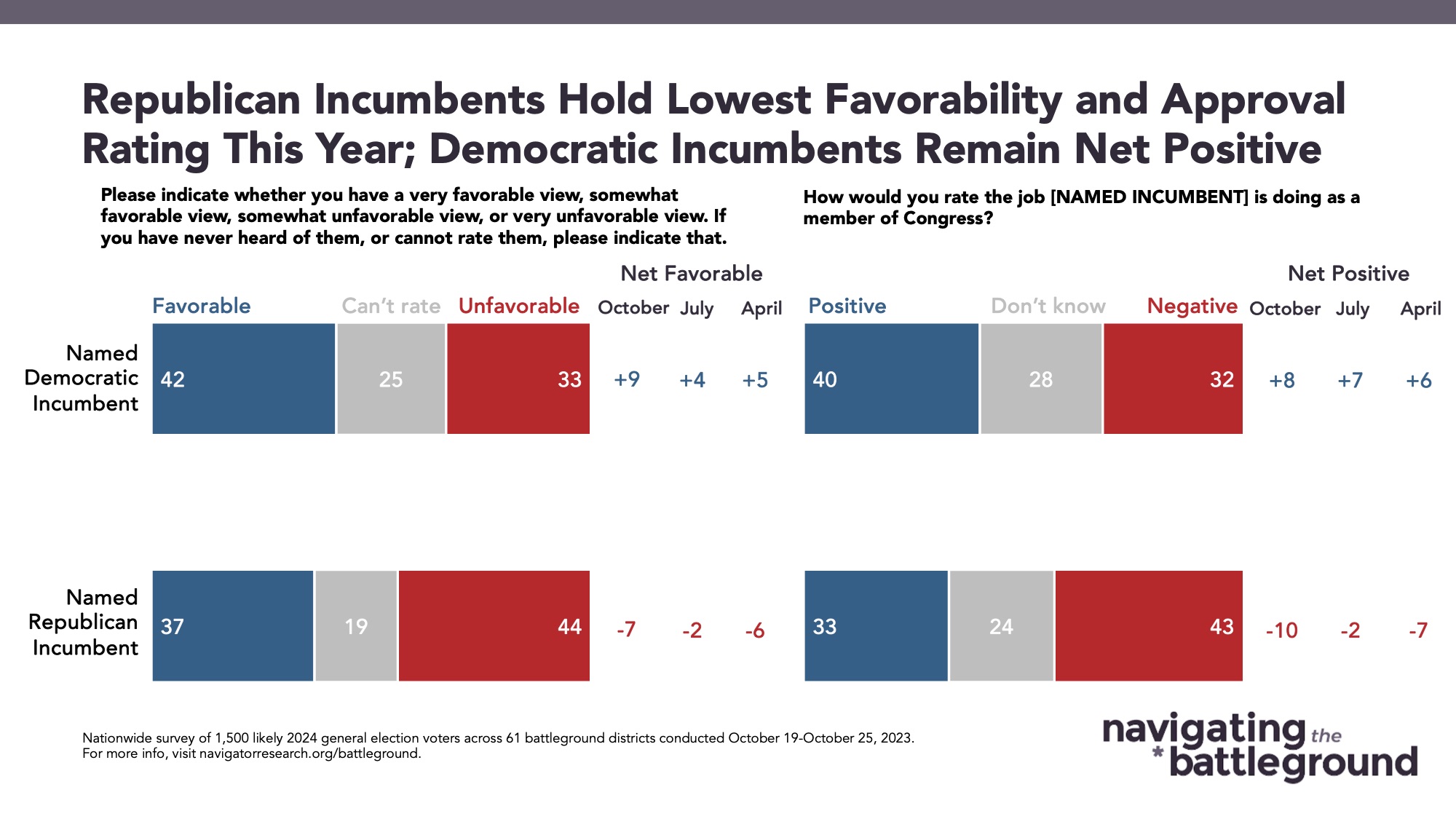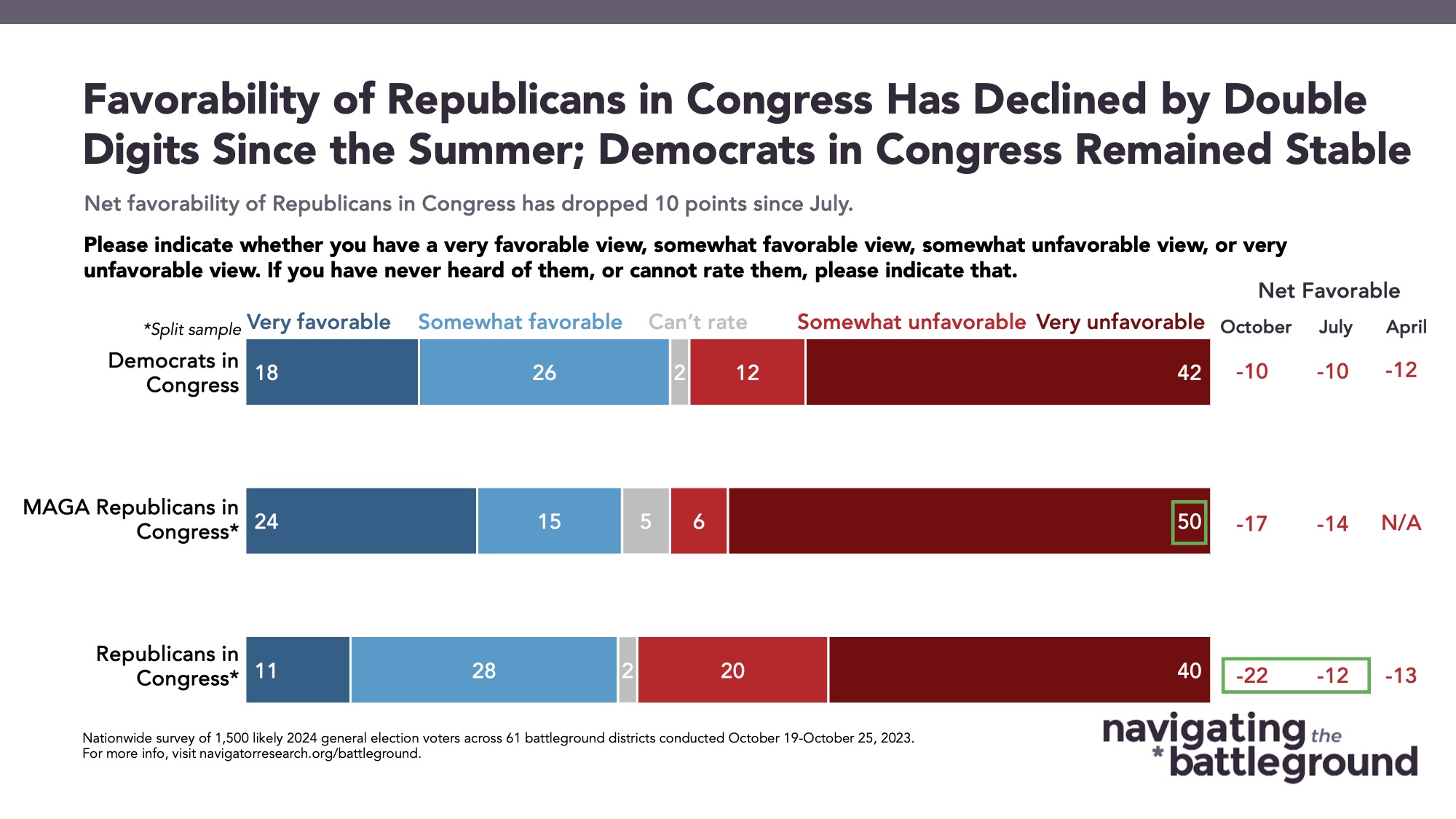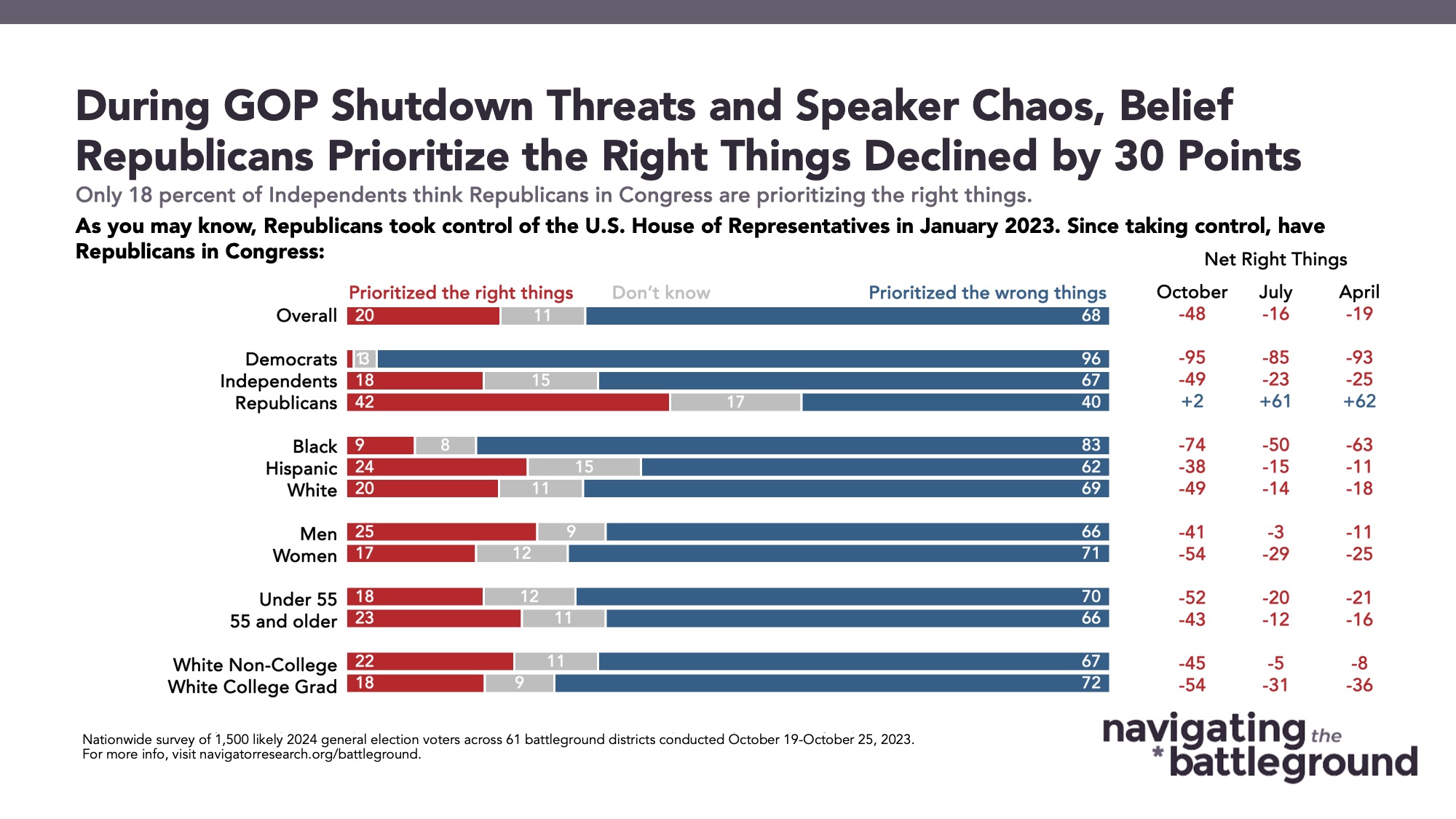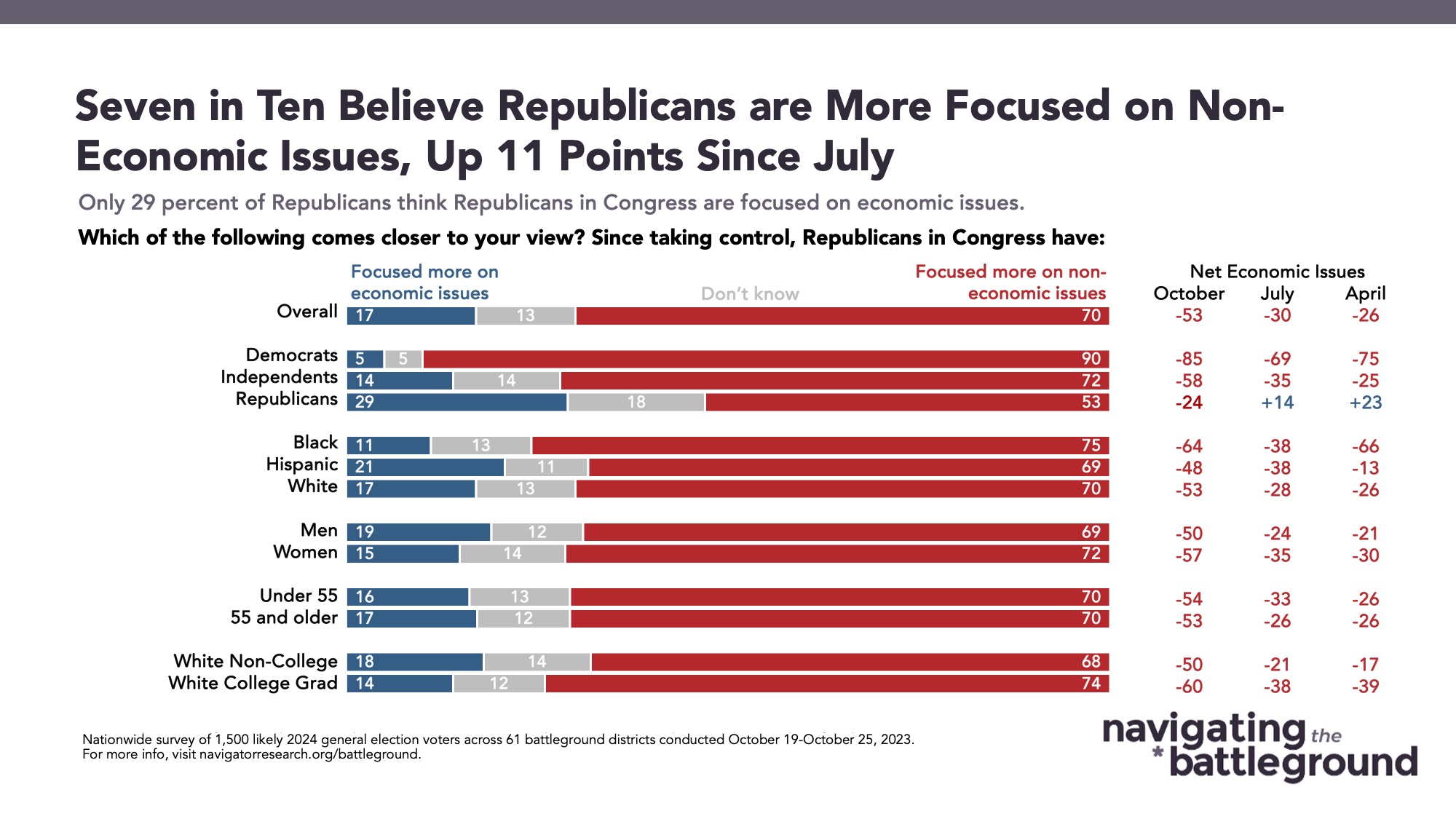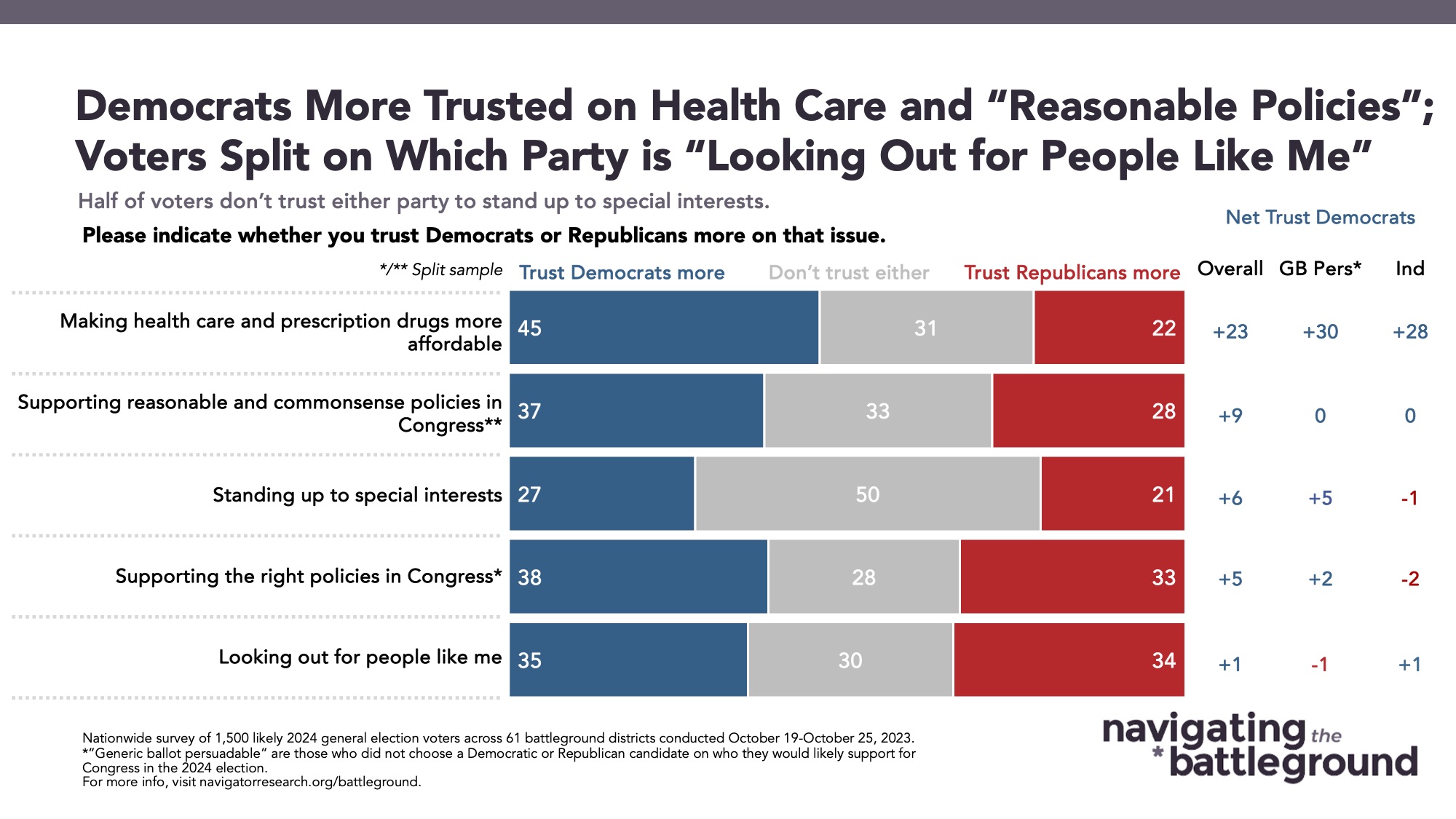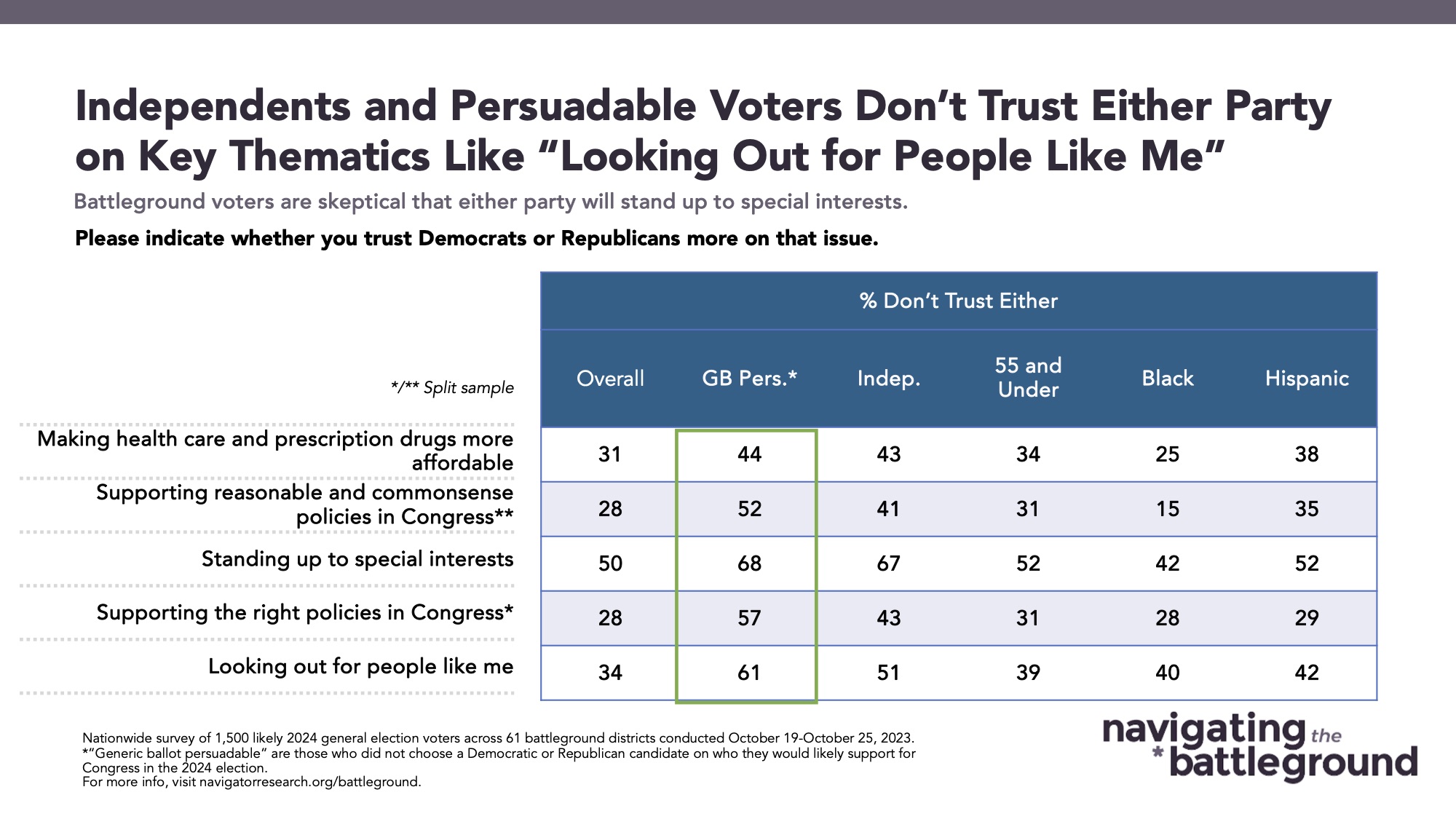Poll: Incumbents in the Battleground
This Navigating the Battleground report examines perceptions of the political parties and incumbents following the speakership battle, including favorability of the political parties, approval of Democratic and Republican incumbent members, and which party is more trusted to handle a variety of issues.
After the speakership infighting, approval ratings of Republican incumbents has declined significantly.
Following the chaos of the House Speaker selection, approval of Republican members of Congress and the overall Republican Congress notably declined while Democrats held steady. Net favorability and net approval of Republican incumbents among their battleground constituents is at its lowest point since Republicans took control of Congress, with their net favorability underwater by 7 points (37 percent favorable – 44 percent unfavorable, a net 5-point decline since July) and job approval net negative by 10 points (33 percent positive – 43 percent negative, a net 8-point decline since July).
- On the other hand, favorability and approval ratings for Democratic incumbents has remained both net positive and stable over the last six months: Democratic members are viewed net favorably by 9 points (42 percent favorable – 33 percent unfavorable) while also holding a net +8 job approval rating (40 percent positive – 32 percent negative).
- More broadly, Republicans in Congress earn even worse net favorability ratings (net -22; 39 percent favorable – 60 percent unfavorable). This is down a net 10 points from our July survey and 9 points from our April survey. There has also been a significant drop in Republican net favorability among battleground independents from net -14 in July (38 percent favorable – 52 percent unfavorable) to net -32 now (32 percent favorable – 64 percent unfavorable). By contrast, Democrats in Congress’ favorability has remained stable at net -10, identical to our July survey (44 percent favorable – 54 percent unfavorable).
Few perceive Republicans as focused on the right things, a net decline of over 30 points.
By a 48-point margin, only one in five battleground constituents believe Republicans have prioritized the right issues since taking control of Congress (20 percent prioritized the right things – 68 percent prioritized the wrong things), a 32-point drop in net “right priorities” since our July survey (net -16, 37 percent prioritized the right things – 53 percent prioritized the wrong things).
- There is also a significant drop in views on Republicans in Congress’ priorities among Republicans constituents in the battleground, who are now evenly divided on whether Republicans in Congress are prioritizing the right things (42 percent prioritizing the right things – 40 percent prioritizing the wrong things). This is a net 59-point drop in views on Republican in Congress priorities since July (from net +61 to net +2).
- Similarly, most battleground constituents believe that Republicans are not focused on non-economic issues (17 percent focused more on economic issues – 70 percent focused more on non-economic issues), which is a net 23-point shift toward non-economic issues in July.
Democrats have real branding advantages on making health care and prescription drugs more affordable.
Democrats hold slight advantages on trust over Republicans in the battleground on health care and “supporting reasonable and commonsense policies,” but many battleground constituents do not trust either party on key traits. Democrats’ largest trust advantage is on “making health care and prescription drugs more affordable” (net +23; 45 percent trust Democrats more – 22 percent trust Republicans more), and the margin is even wider among independents (net +28; 41 percent trust Democrats more – 13 percent trust Republicans more). Democrats also hold a 9-point trust advantage over Republicans on “supporting reasonable and commonsense policies in Congress” (37 percent trust Democrats more – 28 percent trust Republicans more).
- Margins tighten significantly on trust when looking at other traits: Democrats and Republicans are tied on which party is more trusted to “look out for people like me” (net +1; 35 percent trust Democrats more – 34 percent trust Republicans more), with 30 percent of battleground constituents not trusting either party to look out for people like them. More than half of battleground constituents do not trust either party when it comes to “standing up to special interests” (27 percent trust Democrats more – 21 percent trust Republicans more – 50 percent don’t trust either).
About The Study
Impact Research conducted public opinion surveys among a sample of 1,500 likely 2024 general election voters from October 19-25, 2023. The survey was conducted by text-to-web (100 percent). Respondents were verified against a voter file and special care was taken to ensure the demographic composition of our sample matched that of the 61 congressional districts included in the sample across a variety of demographic variables. The margin of error for the full sample at the 95 percent level of confidence is +/- 2.5 percentage points. The margin for error for subgroups varies and is higher.

